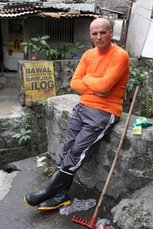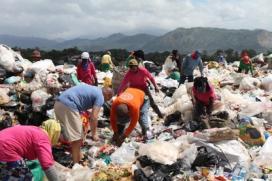Last chance to enter IMPACT members' draw to win a car
Exclusive to IMPACT members

Cornmarket and General Motors Ireland have teamed up for an IMPACT members' draw which could see one lucky winner drive away with a 161 Opel Corsa Excite. Two runners up will win an iPad. To enter you must be an IMPACT member. Deadline for entry is April 30th 2016. To enter, simply click on the panel above (links to an external website).
|
 |  |
|
Public service pay on IMPACT agenda
IMPACT has said there will be a case for accelerated pay recovery if the ‘fiscal space’ expands. Meanwhile, the union is preparing for talks on a new public service pay determination system, which will eventually replace the emergency ‘FEMPI’ legislation, which introduced pay cuts.
IMPACT has circulated information on how public service pay is set in Britain and continental Europe as part of its preparations for talks on a new Irish system of public service pay determination.
The Lansdowne Road Agreement commits the Government to discuss a new pay-setting mechanism, which will eventually replace the (FEMPI) Financial Emergency Measures in the Public Interest Act. Discussions are expected to start later this year.
FEMPI introduced pay cuts and the so-called pension levy. It is expected to be repealed over time as the recovery in the public finances strengthens.
In a letter to IMPACT branches earlier this week, IMPACT general secretary Shay Cody said the union was developing its position in order to enter discussions with a considered view of the most appropriate method for pay determination in Ireland. “In this context, it is obviously useful to be informed by the experience of trade unions in comparable European countries,” he said.
“There are many different forms of public service pay determination and it is vital that Ireland adopts a mechanism that is workable, fair and effective. I believe that the experiences in some other small open European economies are particularly informative for Ireland,” said Shay.
Meanwhile, IMPACT has said that there will be a strong case to accelerate public service pay recovery if better-than-expected growth and ‘fiscal space’ emerge in the coming months. In an article in the Irish Examiner, the union’s head of communications Bernard Harbor said: “Most people now accept that there is a case for public service pay recovery, over time and in the context of financial realities and other priorities in society.
“The cash available will not meet all the demands recently voiced on pay and investment. Union members will expect their negotiators to ensure that any available resources are distributed progressively, and not simply to those who shout first or loudest,” he wrote.
Public service pay determination will be one of the issues debated at IMPACT’s biennial delegate conference, which takes place in Killarney next month.
 |  |
Job evaluations back in health sector
by Bernard Harbor
The health service job evaluation scheme, which was suspended at the outset of the economic crash, is to reopen on 1st June following a successful IMPACT campaign. The scheme, which currently covers clerical and admin grades III to VI, offers staff the prospect of an upgrading if their job roles and responsibilities are found to have increased sufficiently.
The health service job evaluation scheme, which was suspended at the outset of the economic crash, is to reopen on 1st June following a successful IMPACT campaign. The scheme, which currently covers clerical and admin grades III to VI, offers staff the prospect of an upgrading if their job roles and responsibilities are found to have increased sufficiently.
Under an agreement with the union, the HSE has agreed to fast-track staff who had applied for a job evaluation prior to the scheme’s suspension in 2008. Workers who were recommended for job evaluation during the recent long-term acting regularisation process will also be prioritised, along with those who have been recommended for job evaluation by third parties. New applications from clerical officers will also get priority.
The scheme applies to all mainstream health organisations including voluntary hospitals and other ‘section 38’ agencies.
IMPACT has called on the HSE to put resources in place to clear the substantial backlog of cases already in the system. The union’s national secretary Eamonn Donnelly said there could be as many as 700 people already due an evaluation under the agreed priorities.
“The reintroduction of job evaluations is good news for IMPACT members and for the health service, where staff morale and motivation will be boosted if people get proper recognition for the skills and responsibilities they bring to work.
“The huge cuts in clerical and administrative staffing since the moratorium have seen large numbers of our members taking on huge extra burdens to fill the gaps. In job evaluation terms, many have seen their jobs grow in size compared to eight years ago,” he said.
IMPACT has this week completed in-depth job evaluation training for union representatives and the union will be ready to start work when the scheme opens in June. Donnelly has told the HSE knows they must match this effort to tackle the substantial backlog.
The union also says the scheme is capable of being applied to more senior administrative and management grades, as well as professional and technical staff. “The HSE knows we want to see the scheme extended to these groups over time,” said Eamonn.
Job evaluation schemes are not the same as performance assessments. They assess the skills and responsibilities required in a particular role, rather than the individual performing it. Under the agreement reached with the HSE, positions that are upgraded following job evaluation schemes will be filled by current post-holders if they have been in the job for four years or more. Otherwise they will be filled by competition.
 |  |
Spotlight on early years’ services
by Niall Shanahan
IMPACT’s education division conference has highlighted the need for professionalisation and better pay in the early years’ sector. Staff there are experiencing similar problems to special needs assistants, school secretaries and others groups that the union has successfully organised and represented.
Access to promotions demanded
by Bernard Harbor
 |
| Andy Pike, IMPACT National Secretary. |
|
A civil service competition for promotions to higher executive officer (HEO) posts must be opened to technical and professional grades equivalent to HEO, IMPACT has demanded. Read more.
Cabin crew health survey: almost 50% report illness during survey, but continued to work
by Niall Shanahan
A new survey reveals that almost half of Aer Lingus cabin crew work while they are sick, with over 25% of respondents saying they did so three or more times during the four-week survey period. IMPACT officials blame demanding new rosters and sick leave procedures.
A new IMPACT survey has revealed that almost half of Aer Lingus cabin crew work while they are sick. Over 25% of respondents said that they had done so three or more times during the four-week survey period. And over a third reported that they took sleep medication once a week or more.
The final report of IMPACT’s Cabin Crew branch Health and Wellbeing Survey, gives a detailed picture of the state of health and mental wellbeing of Aer Lingus cabin crew. The report, by Dr Richard Wynne of the Work Research Centre, is based on a detailed survey taken over a 28 day period in July 2014.
IMPACT assistant general secretary Michael Landers said the report was commissioned against a background of demanding changes in work procedures including rostering, sick leave arrangements and occupational stress. He said the main reasons cabin crew give for working while ill is that they want to avoid disciplinary action (39%) or they didn’t consider their illness serious enough to miss work (29%).
“There is a very high level of dissatisfaction with the company’s sickness absence procedures. Just over 40% of cabin crew responding to the survey said that they were required to see the company doctor on the first day of their absence from work due to illness. This helps to explain the high levels of ‘presenteeism’ among cabin crew, and raises genuine concerns about health and safety of staff and passengers if people are continuing to work through periods of illness. It also indicates that actual rates of illness are probably underestimated,” he said.
Just over 20% of respondents said they continued to work because they didn’t want to let their colleagues down, with 17% citing financial reasons.
Mr Landers said that the report also revealed significant problems with sleep disruption and a high level of dependence on sleep medication. Over a third of respondents say they took sleep medication at least once a week. The survey also reveals significant problems with digestive disorders, psychological wellbeing, workplace stress and the physical work environment. Rosters
Rosters continue to present difficulties for Aer Lingus cabin crew. Over 80% of respondents reported that they hadn’t had the opportunity for a meal break while working, and that this had occurred, on average, just over four times during the survey period. More than half of respondents reported that this had occurred three or more times during the period.
Mr Landers said: “During the survey period a large majority worked flight duty periods of more than nine hours, while almost a third had worked at least one flight duty period of more than 13 hours. Most experienced flight delays, difficulties in taking meal breaks and duty swaps were also difficult to achieve.
“Most cabin crew reported obtaining the minimum rest period (12 hours off between shifts under flight time limitation rules) just once in the period. Overall, levels of satisfaction with the roster system were low, and remain a very significant problem for cabin crew,” he said.
Low morale
The survey also assessed levels of stress at work, using methods developed by the Health & Safety Authority, and shows high levels of stress arising from poor communications between management and staff, with 34% of respondents describing morale at work as being ‘very low’.
Mr Landers said that, overall, approximately 38% of cabin crew reported poor wellbeing. “Compared against data collected by the Work Research Centre and ESRI, the survey indicates that cabin crew report among the highest levels of psychological distress of all occupation groups, including teachers and health care workers,” he said.
The most negative responses related to lack of support when under pressure at work (46.7%), and the employer’s lack of flexibility to allow staff to manage non-work commitments, such as family and dependents (41.7%). Respondents also criticised the lack of positive and formal feedback from management.
Solutions The report’s author, Dr Richard Wynne, has recommended that a joint union/management approach on health and safety is necessary. Mr Landers added, “This would require a safety-focused approach to monitoring rosters for health indicators and the particular effects on sleep disruption, as well as hazard identification for physical risks in the workplace.
“Arrangements for taking meals during the working day need to improve. We also need a fresh approach to managing attendance at work. The company must change the emphasis from its current focus on control measures, and focus instead on improving attendance through improving underlying health and wellbeing,” he said.
Mr Landers said that the survey reveals the price paid by Aer Lingus staff for maintaining the levels of service upon which the airline has built its reputation. “These are workers whose loyalty to the company has seen it through the worst of times, returned it to profitability, and made Aer Lingus an attractive acquisition for its parent company IAG.
“However, it has come at a cost to the health and wellbeing of cabin crew, and this is an issue we want to work on closely with Aer Lingus management. If management ignore the results of this survey, the ongoing effect will be corrosive for both management and Aer Lingus workers,” he said.
 |
|
 |  |
|
Would-be Taoisigh warned on NEPS
IMPACT has written to Enda Kenny and Micheál Martin urging them to remember their manifesto pledges to boost the National Educational Psychological Service as they attempt to form a government. The union also contacted all members of the 32nd Dáil on the issue. Read more.
Union meets Kelly on Irish Water
by Lughan Odlum Deane
IMPACT and other Irish Water unions have welcomed environment minister Alan Kelly’s call for workers to have a voice in the debate about the future of the utility. Following a meeting with the minister last week, Adrian Kane – secretary of the Irish Water group of unions – said the he felt that Kelly understood workers’ concerns regarding their future livelihoods.
IMPACT official Johnny Fox welcomed the minister’s decision to write to the leaders of all political parties urging them to meet Irish Water workers before deciding the fate of the organisation.
The unions have warned political parties against tabling “reckless” bills that would move Ireland away from a wholly publicly-owned, single, integrated water utility.
Muno man in Manila
IMPACT member Mark Crosbie’s experience, working as a street sweeper in Manila, is the subject of a documentary to be broadcast on RTÉ One at 9:35 on Monday 18th April.
by Niall Shanahan
 |
 A new documentary series following Irish workers as they try to do their jobs in some of the world's most demanding locations begins with Dublin City Council street cleaner Mark Crosbie heading to Manila, the capital of the Philippines. A new documentary series following Irish workers as they try to do their jobs in some of the world's most demanding locations begins with Dublin City Council street cleaner Mark Crosbie heading to Manila, the capital of the Philippines. Mark had just returned from a family trip to Florida earlier this year when he got the call to join a TV documentary crew in the Philippines. At first he thought it was a practical joke by some of his friends in Dublin City Council’s cleansing department. What followed was a life changing experience as Mark found out what it’s really like to work in the world’s toughest place to be a street sweeper. “I thought it was a wind-up” he explained. “I got a call from work. They said ‘we’re thinking of flying you over to Bangladesh for a job’. I thought it was a like a prank call from Gareth O’Callaghan on the radio.” But it wasn’t a prank call. A TV production company were looking for someone with Mark’s background to go and spend some time with a family in Manila to find out what it’s like to work there as a ‘palero’ or street cleaner. “A friend of mine Thomas Daly, also a member of IMPACT, had put my name forward without me knowing anything about it. I thought it would just be like my own job. They asked me if I’d be up for hard, physical work and I said yes, no problem,” he explained. The TV show, World’s Toughest Place To Be A...originated at the BBC and features workers take on their own line of work in poorer countries, such as bin collecting in Jakarta, trawler fishing in Sierra Leone, and driving a bus in Manila. Mel & Merly  After receiving his inoculation shots for diphtheria and yellow fever, Mark travelled for 36 hours with the TV crew. After a night’s rest at a hotel, Mark was placed in a family home in one of Manila’s working class districts, Botocan in Quezon City (QC). After receiving his inoculation shots for diphtheria and yellow fever, Mark travelled for 36 hours with the TV crew. After a night’s rest at a hotel, Mark was placed in a family home in one of Manila’s working class districts, Botocan in Quezon City (QC).
QC is the most populous city in the Philippines and the most populated local government unit in the country. Daily temperatures regularly exceed 30 degrees and humidity of 70%. “I lived with a family of eight. Mel, his wife Merly and their six kids. Mel works for the local authority, for a salary of €60 a month. Their home was very basic, built with concrete blocks and a corrugated iron roof. The main room was about nine feet long and seven feet wide, with a ladder that led to a similar sized room above that. “The daily routine involved going out with the paleros and the film crew. Mel’s shift would start at 6am and he works until 12, six days a week. The idea was that he would show me his route and all the various jobs he has to do each day, then I would take over his shift for a day to give him a day off. “Some of the streets are just a couple of feet wide, with market stalls and scooters all around you. We worked with a handcart that weighed like a Sherman tank,” he says. Valued Mark was struck by the attitude of the local population toward the paleros. “They really respect them, the six paleros in the Botocan district are valued members of their communities because they keep the place clean. “Mel also deals with sewage waste, the sewers are open, like a stream, and waste drops directly from the houses into this stream. It can get blocked up so he has to rake it out at different locations to keep it flowing, sometimes the water level is higher than his boots so the water and waste gets in,” he explains. “I was willing to do the same work with the same equipment the lads use, to show I was up for the challenge. But the TV crew had bought me a proper set of waders for safety, so at the end of the shoot we gave our boots and waders to the local palero crew.” Mark also donated all of his clothes and travelling expenses to his hosts, Mel and Merly. “The people I met have nothing, no luxuries, none of the things we’d take for granted, but they are so welcoming, they took such good care of me. They seemed genuinely glad to have me there. Smoky Mountain  IMPACT’s Central Executive Committee (CEC) has approved a donation from IMPACT’s Global Solidarity Fund for one of the projects that Mark visited in Manila. KNK operates Alternative Learning System (ALS) activities in Payatasu or "Smoky" Mountain District, which is known for child labour in landfill heaps. IMPACT’s Central Executive Committee (CEC) has approved a donation from IMPACT’s Global Solidarity Fund for one of the projects that Mark visited in Manila. KNK operates Alternative Learning System (ALS) activities in Payatasu or "Smoky" Mountain District, which is known for child labour in landfill heaps.
KNK Children Centre offers educational opportunities to children in these locations who can't go to school, and educational programs that foster leadership and cooperation through volunteer activities. Mark is also organising a fundraising event later in the year for the Smoky Mountain project. Details of the fundraiser will be included in a future IMPACT ebulletin. This is a summarised version of Mark’s story which appears in the latest edition of Work & Life magazine, which is begins circulating in your workplace from next week.
 |  |
PSEU backs new union project
The Public Service Executive Union (PSEU) conference has today (Friday) backed a motion to proceed with the New Union Project, which proposes to create a new trade union along with IMPACT and the CPSU. A large majority of delegates at the PSEU conference in Galway backed the initiative.
The next steps will depend on the decisions of delegates at the forthcoming IMPACT and CPSU conferences.
Harold O’Sullivan remembered
by Martina O’Leary
 |
Former IMPACT leader Harold O'Sullivan (1924-2009) was remembered at an event organised by the union at Louth county library earlier this month. A workspace in Dundalk library was dedicated to the memory of the public servant, trade unionist and historian in the place he spent many hours researching after retiring as general secretary of the Local Government and Public Services Union (LGPSU), a forerunner of IMPACT IMPACT general secretary Shay Cody said Harold was a dedicated public servant and a passionate historian. “Harold was a brilliant advocate for public services and it seems entirely appropriate that we remember him here and invite future visitors to the library to reflect on Harold’s positive legacy,” he said. Early in his working life Harold joined what was then the Irish Local Government Officials Union, moving up through the ranks as shop steward and executive council member before becoming general secretary in 1964. He was first elected to the Irish Congress of Trade Unions’ executive in 1968 and became its president ten years later, when he described the tax burden on PAYE workers – who then paid almost 80 per cent of their income in tax – as “grossly inequitable.” The following March he said the “PAYE classes” would no longer tolerate the situation, and ICTU supported massive nationwide demonstrations involving a quarter of a million workers. Harold later made his mark as a local historian, publishing or contributing to several books dealing with the borderlands of southeast Ulster. He also wrote numerous articles for local historical journals.
 |  |
Trade unionist Richard O’Carroll commemorated
by Lughan Odlum Deane
 |
A series of events to honour the memory of trade unionist Richard O’Carroll, who died after being shot during the Easter Rising, takes place this month.
Cllr. Richard O’Carroll (1876-1916) was a bricklayer from the Liberties area of Dublin. From early in his career, O’Carroll was an active member of The Ancient Guild of Brick and Stone Layers Trade Union (now BATU); he went on to become the union’s general secretary. O’Carroll began his political activism as an executive member of Sinn Fein before successfully contesting the 1907 and 1910 Dublin Corporation elections as an independent in the Mansion House Ward. He was elected for a third time in 1912 on the Labour Party ticket. O’Carroll fought passionately against the use of child labour in Ireland.
O’Carroll was very active during the 1913 lockout and delivered speeches in support of the striking workers at Croydon Park and Emmet Hall in Inchicore. O’Carroll was a member of the Irish Volunteers from the movement’s first inception. During the Easter Rising of 1916, he was made a lieutenant in the Volunteers and commanded the ‘Delahunt’ post near Jacob’s Biscuit Factory on Camden Street. When his battalion engaged British troops, O’Carroll was shot by Captain Bowen-Colthurst. It took O’Carroll another ten days to die. He ultimately succumbed to septicemia at Portobello hospital on May 5th, 1916.
On Thursday the 21st of April there is a graveside commemoration and talk in honour of O'Carroll at Glasnevin Cemetery. Space is limited, so email brickie1913@gmail.com to reserve a place. On Sunday, April 24th there will be a Richard O’Carroll walking tour happening at 3.30pm. Details will follow at https://richardocarroll1916.wordpress.com. At noon on Wednesday, April 27th a commemorative plaque will be unveiled at O’Carroll Villas, Cuffe Street. Finally, on Thursday, April 28th, a cultural evening is planned at Liberty Hall. Alan O’Brien and Patrick Ferris’s play about O’Carroll, “From the Backbone Out”, will be performed. Spaces are limited, so, again, email brickie1913@gmail.com to reserve a seat.
 |
|
|
|